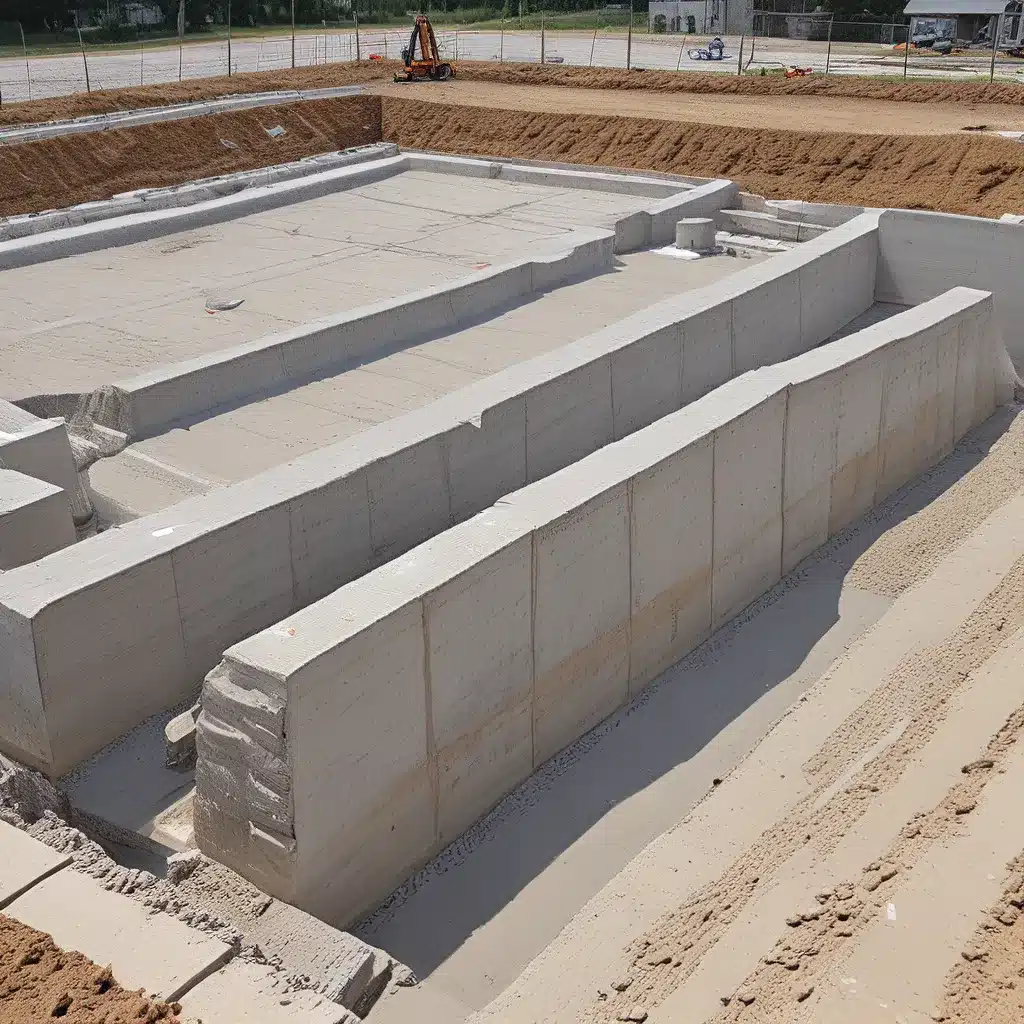
In the ever-evolving landscape of construction, the foundation of a building plays a crucial role in ensuring its structural stability and longevity. As a homeowner or business owner in Kansas City, understanding the intricacies of concrete foundations can be the difference between a sound investment and a costly headache. In this comprehensive guide, we will delve into the world of concrete installation, repair, maintenance, and the various factors that contribute to the overall structural integrity of your property.
The Importance of Geotechnical Investigation
Constructing a sturdy foundation is not merely a matter of pouring concrete and calling it a day. It requires a meticulous approach that begins with a geotechnical investigation. This critical process involves the collection of essential data to assess the bearing capacity, settlement, and lateral load resistance of the soil, ensuring that the structure is built on a solid and safe foundation.
Geotechnical investigation is the bedrock of sound foundation design, as it provides the necessary insights to engineers and contractors. By understanding the principles and best practices of geotechnical investigation, the construction industry can uphold safety, durability, and the long-term performance of structures.
Concrete Block Foundations: Strength in Structure
One of the most common foundation types is the concrete block or Cinder Masonry Unit (CMU) foundation. This method involves stacking cinder blocks, also known as concrete blocks, on top of a concrete footing. The blocks are then reinforced with rebar and filled with concrete to create a sturdy and reliable foundation.
The advantages of a concrete block foundation include its simplicity in construction, cost-effectiveness, and the ability to reinforce the structure with rebar for added lateral strength. However, it’s crucial to ensure that the blocks are installed with the holes facing vertically for maximum structural integrity, as improper orientation can lead to issues like the one depicted in the source information.
Poured Concrete Foundations: A Seamless Approach
Alternatively, poured concrete foundations offer a different approach to creating a sturdy base for your structure. This method involves building wooden wall forms on top of the foundation footings, which act as molds to shape the foundation walls. Steel rebar is then added for reinforcement, and the concrete is poured into the forms.
Poured concrete foundations are less vulnerable to water intrusion and can provide a more seamless appearance, but they often require specialized equipment, more preparation, and a potentially higher budget. The trade-off is a foundation that is less prone to leaks and offers enhanced lateral strength.
Factors to Consider: Moisture, Budget, and Timeline
When deciding between a concrete block or poured concrete foundation, several key factors should be taken into consideration:
-
Moisture: Poured concrete foundations are generally more resistant to water penetration, making them a better choice for areas with high moisture levels or potential flooding concerns.
-
Budget: Concrete block foundations are often more cost-effective than poured concrete, making them a viable option for those working with a tighter budget.
-
Timeline: Concrete block foundations can be constructed more quickly than poured concrete, which may be a crucial consideration for time-sensitive projects.
Maintaining Concrete Foundations: A Proactive Approach
Proper maintenance is essential to ensuring the long-term durability and stability of your concrete foundation. This includes regular inspections for cracks, settling, or any other signs of structural distress. Addressing these issues promptly can prevent further deterioration and costly repairs down the line.
In addition to visual inspections, it’s crucial to keep the area around the foundation well-drained and properly landscaped to minimize the impact of moisture and soil movement. Maintaining a healthy and balanced soil environment can go a long way in preserving the integrity of your concrete foundation.
Concrete Repair and Restoration: Restoring Structural Soundness
Despite the best-laid plans, even the sturdiest concrete foundations can succumb to the effects of time, weather, and the natural shifting of the earth. When issues arise, it’s essential to enlist the services of a qualified concrete contractor in Kansas City to assess the situation and implement the appropriate repair or restoration measures.
These may include crack injection, slab jacking, or even complete foundation replacement in severe cases. A professional contractor will have the expertise to diagnose the problem, devise a tailored solution, and execute the work with precision to ensure the long-term structural stability of your property.
Conclusion: Investing in the Foundation of Success
In the world of construction, the foundation is quite literally the bedrock upon which the success of a project rests. By understanding the importance of geotechnical investigation, the nuances of concrete block and poured concrete foundations, and the ongoing maintenance required, you can make informed decisions that will safeguard the structural integrity of your Kansas City property.
Partnering with a reputable concrete contractor in Kansas City is the surest way to ensure that your foundation is not just laid, but perfected. With their expertise and dedication to quality, you can rest assured that your investment in a sturdy and reliable concrete foundation will pay dividends for years to come.

